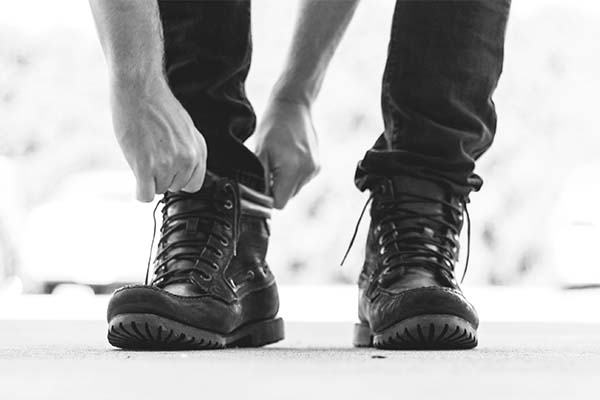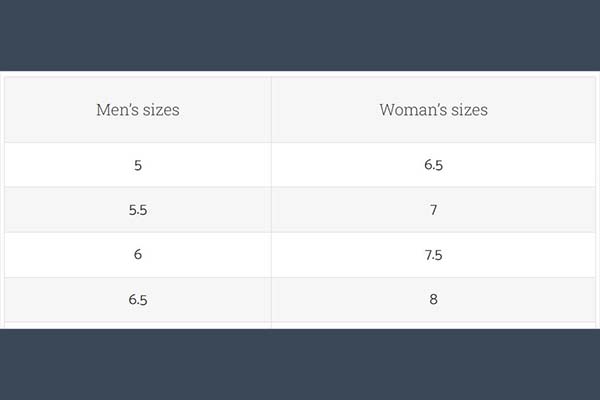Work boot guide
What is a work boot?
The name says it all – a work boot is a boot made for work! Usually defined by their sturdiness, protection in the toecap, good traction and durability, work boots are used by people who do all types of manual labor.
They’re sometimes referred to as steel-toe boots since many of them are equipped with a steel protection place to prevent damage, should something heavy fall on the workers feet. Not all work boots have steel toes though, so in this article we’ll use the general term.
This article includes affiliate links
Are work boots necessary?
If you have to ask, the answer is probably YES. If you’re working with heavy materiel, operating heavy machinery or anything of the sort you’ll want to make sure your feet are protected.
Work boots will also help you if you work in slippery/wet conditions and want to reduce the risk of slipping and falling.
Some workplaces require you to wear work boots and depending on where you live, there might be laws in place to ensure that workers wear the right footwear.
Buy Work boots on Amazon
What is a non-slip work boot?
A non-slip work boot helps you stand your ground in your work environment. It’s a boot that’s great for those working on wet or slippery floors, but they’re very versatile and anyone can benefit from good non-slip work boots. They’re especially good for those working in construction, healthcare and hospitality.
When choosing your non-slip work boots, first look at the sole. The outsole is typically made from rubber and has an interlocked tread pattern, which serves to give your feet a better grip and prevent any water from entering the pattern.
What’s the difference between a steel toe and a composite toe cap?
While both composite toe caps and steel toe caps are made to protect your feet, there are a couple of differences. Let’s look at the main one: the material. While steel toe caps are made from, well, steel, composite toe caps are made from non-metallic materials, typically Kevlar, carbon fibre, plastic or fibreglass.
So how do you decide what type of toe cap you need? Some workplaces have regulations, so be sure to check those first.
Starting with steel toe caps, the advantage is that they can often withstand more weight than their composite toe cap counterparts. With modern technology the difference is becoming smaller though.
The advantage of composite toe caps is that they’re non metallic, which generally makes them a better choice if you need non-magnetic shoes. They also won’t conduct electricity, which is extremely important if you’re working in a place with live electrical wires.
If you work at a place where you have to go through security scanners, you may want to consider this type of work boots as well.
Are work boots comfortable?
Work boots are supposed to be comfortable enough to work long hours every day, so if your work boots feel uncomfortable you might not be wearing the right pair for your feet. With that said work boots can take some time to break in so don’t despair if they aren’t perfect after your first work day. Make sure you buy a pair that’s not to small and that the toe cap doesn’t hurt your feet – in that case they’re too narrow.
Should work boots fit loose?
No, but they shouldn’t fit too tight either. Your work boots should fit snugly around your forefoot, leaving plenty of wiggle room in the toe cap. Your heel should not slip or rub against the back. Some people like to size half a size up in work boots and this can be a good idea if you have long feet or feel like the boots are too tight in the toecap. Just resist the urge to buy work boots that are too wide – they should fit snugly and will take shape after your feet in due time. If you decide to size up, it should be to get longer boots with more rooms for the toes.
Are work boots waterproof?
Like with most types of footwear it depends entirely on the model you choose. Some work boots are water resistant, some are waterproof while some are made for dry environments. There are many benefits in choosing a waterproof work boot. You could look at leather or rubber work boots that usually have some water resistant abilities. If you want to make sure that your feet stays dry, no matter the weather, look for labels suchs as GORE-TEX or Outdry.
You can also waterproof your work boots with silicone spray, though this will need to be reapplied fairly ofteh for them to stay waterproof.
Are work boots good for everyday wear?
In general, yes. While older work boots might not be super comfortable to wear after hours, modern work boots are often created with casual wear in mind, meaning that you don’t have to change out of your work boots as soon as you clock out. Some steel toe boots might be a bit uncomfortable to wear all the time though. As with any type of footwear, it all depends on the quality of the boot. If you choose a good pair of work boots you’ll have a sturdy, durable and comfortable pair of boots that you can wear almost everywhere.
Are work boots good for hiking?
Yes and no. Confused? Read on.
Work boots and hiking boots are similar in many ways. Both are sturdy with good grips, made for wearing over long time periods. So why not save the money and go hike in your trusty work boots? Well, in some cases you can.
For short day hikes on fairly even terrain, most work boots will do just fine. The sturdy boot will provide good support and usually a pretty good grip.
But as soon as you step into more uneven terrain, mountain hiking or crossing streams, you’ll want boots built for that. Hiking boots feature lug soles, similar to the ones you’ll find on working boots. But if you take a look at the pattern you’ll notice that while working boots often have even patterns, hiking boots have much more uneven patterns that can even seem random – something that’s important for uneven terrain to ensure a good grip no matter where you are.
If you’re going on longer hikes you’ll definitely want to bring hiking boots as well, as work boots will often be heavier due to the toe caps and materials.
Check out our guide to hiking boots here on Sizerunner.
Are work boots tax deductible?
Assuming that you’re in the U.S, the answer is yes in most cases. Of course deduction only applies if you actually need work boots for your occupation. Check with your company and tax deduction laws in your country/state if you’re in doubt.
Popular brands making work boots
Skechers
Skechers make some of the most comfortable and popular work boots and shoes for both men and women. They are available with or without safety toes. Read our Skechers sizeguide here.
Caterpillar
If you want a tough, no-nonsense work boot, Caterpillar is a good choice. Their boots are often on the heavier side and they offer both steel toe cap models as well as composite toe caps. Check out our Caterpillar size guide here.
Timberland
Timberland makes some of the most stylish work boots on the market, with both classic and modern designs. Timberland offers a wide variety of different work boots for men and women, often with a twist that makes them stand out from the rest. They offer both steel toe cap models as well as composite toe caps. See our Timberland sizeguide here.
Keen
Keen is known for their outdoor and casual footwear, but they also make great work boots. They offer both steel toe cap models as well as composite toe caps. See our Keen sizeguide here.










